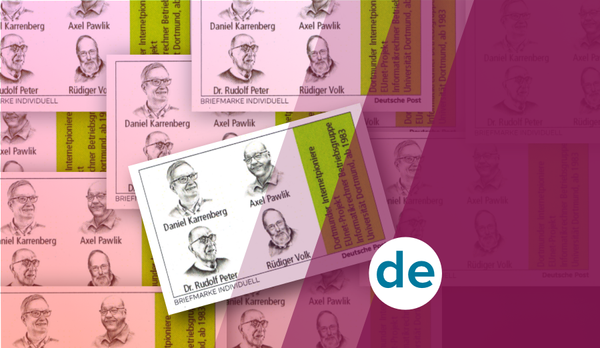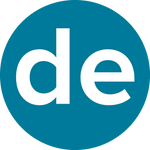The University of Dortmund is celebrating the birth of the German internet
40 years ago, the evolution of the digital landscape in Germany started at the University of Dortmund (now TU Dortmund University). Four German internet pioneers laid the foundation for the undertaking: The computer scientists Daniel Karrenberg, Axel Pawlik, Dr. Rudolf Peter and Rüdiger Volk triggered a ground-breaking development that has turned the internet into a common part of daily life in Germany.
On 12 July, a sculpture created by the artist Sebastian Wien will be unveiled in the honour of the four, and the so-called EUnet avenue will be officially opened in their presence. The ceremony will start in the afternoon on the campus of TU Dortmund University.
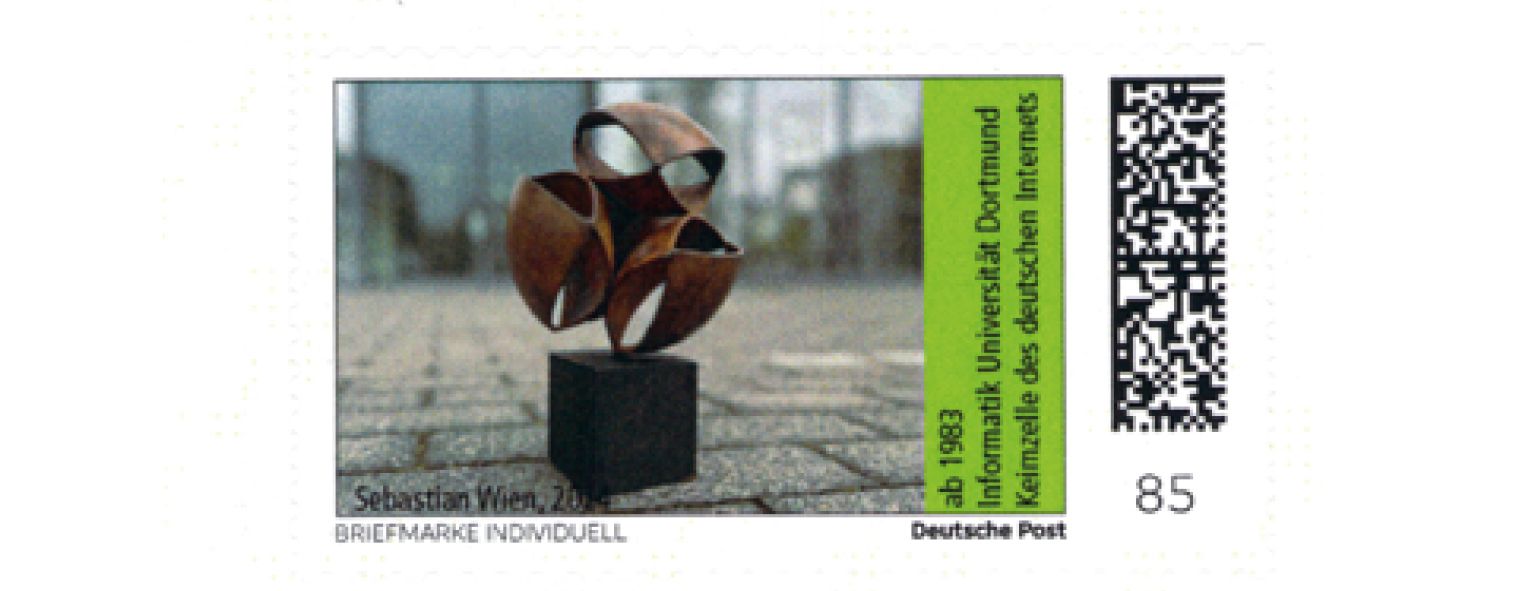
With special stamps the great achievement is appreciated beyond this special day. One shows the portrait of the four internet pioneers, another displays the EUnet sculpture, which represents TU Dortmund University as the nucleus of the German Internet.
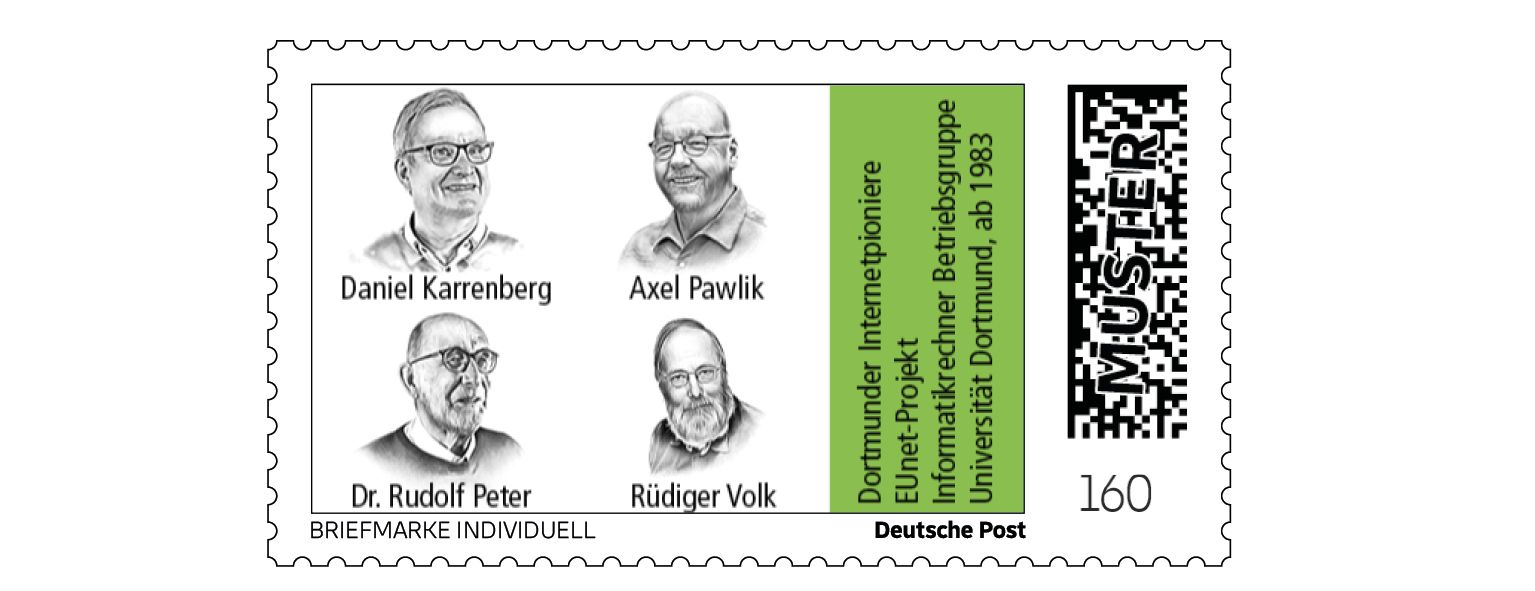
Moreover, a virtual German Internet Museum has been set up. Here, you can get interesting glimpses on the early days and find out details in recorded interviews with the four pioneers. Don’t miss it!
Students, too, already got an opportunity to benefit from the 40-year anniversary. At this year’s Campus Champ run, special prizes were waiting: The winner of each category was awarded the EUnet cup and received a cash prize of EUR 250. Rüdiger Volk himself presented the trophy.
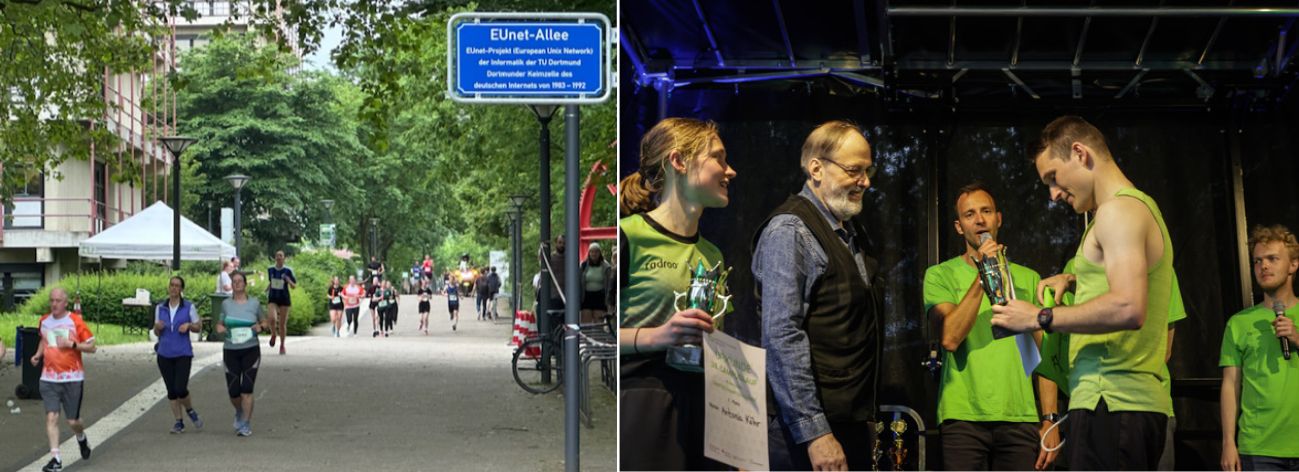
Looking Back to the Early Days: the EUnet Project and the DE-NIC Project
The initiative to expand the so-called EUnet project came from the Computer Science Computer Operations group, the so-called IBR, of the Faculty of Computer Science at the University of Dortmund. Daniel Karrenberg had learnt about the new communication channels mail and news in the USA and wanted to use them in Dortmund as well. The EUnet, which is the abbreviation for European Unix Network, was predestined to provide the necessary infrastructure; the network connected German networks with other national European networks and also enabled communication with the help of computers. In 1988, the administration of .de domains was transferred to the EUnet project, which was headed by Rüdiger Volk back then. This is where DENIC comes into play: Until the end of 1992, .de domains were administered under the name DE-NIC (German Network Information Centre) at the University of Dortmund. In 1993, Axel Pawlik and two colleagues founded EUnet Deutschland GmbH as the first commercial German Internet service provider in the technology center “TechnologieZentrum Dortmund”. Linking the two projects EUnet and DE-NIC successfully at the University of Dortmund was a decisive step in shaping the digital landscape and the development of the Internet in Germany. However, none of this would have been possible if Dr Rudolf Peter, then head of the IRB, had not recognised the potential of the EUnet project at an early stage and actively promoted it.
In the coming weeks, we will tell you more about the four internet pioneers in this blog. Stay tuned 😊.
For now, we are looking forward to 12 July in Dortmund. It goes without saying that DENIC will be among the guests when the EUnet avenue is inaugurated and the sculpture unveiled. And of course we belong to the group of sponsors. After all, the commitment to a secure and reliable internet accessible to all is one of our central concerns. And without the pioneers who pursued their vision in Dortmund, the internet in Germany would certainly not be what it is for all of us today. So, this is a wonderful occasion to honour their achievements.
To learn more about the ceremony, go to the website of the TU Dortmund alumni association "aido", which is in charge of organising the event.


